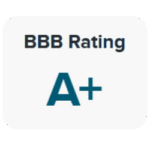Understanding the Drive Behind Timeshare Cancellation Companies’ Support
Timeshares are a popular financial instrument in the travel industry. According to the American Resort Development Association (ARDA), the timeshare industry is worth over $9.2 billion. Timeshare owners are sold a dream of fantastic vacation plans that offer cheaper alternatives to other travel options. So why are millions of Americans searching “how do you sell a timeshare?” online?
A timeshare contract offers fractional ownership of a property in a resort destination, often for one week a year. You co-own the property equally with other fractional timeshare owners. Over time, you may realize that you were handed a raw deal. If you have come to the point of asking, “how do you sell a timeshare?” you are not alone. You are part of 85% of timeshare owners searching for ways to get out of a timeshare deal.
Here are several reasons why timeshare cancellation companies go the extra mile to help clients get out of their timeshare lease agreement.
1. Expensive Investment for One-week, Annual Habitation
According to ARDA, the average timeshare contract for a one-week stay is approximately $21,445. This is equivalent to spending $412 every week to a stay in the resort for just seven days. With luxury timeshares setting you back $100,000 to $250,000, the cost of owning a timeshare can be incredibly expensive. Take note that this is just the beginning of your financial responsibilities for the timeshare.
2. Lifetime Expenses and Maintenance Fees
As a timeshare cancel service, Lonestar Transfer often works with clients who inherited the financial responsibility from their parents. In addition to the national average of $21,445, you may have to part with annual maintenance fees of approximately $800.
If the resort is far from your home, you may have to incur additional travel costs to make use of your contract. Most people end up not using their timeshare and take their frustrations online, searching “how do you sell a timeshare?”
3. Floating Timelines Make It Difficult to Use
Timeshares can either be fixed or floating contracts. Fixed timeshares allocate a specific week every year for you to occupy the resort. With floating timeline contracts, you can choose other weeks during the year to use the contract instead of the same fixed week. However, you may have to negotiate with the other 51 fractional owners to swap weeks. The disappointed client ends up searching for timeshare exit services.
4. Timeshares Don’t Appreciate in Value
On your search for “how do you sell a timeshare?” you have probably come across the infamous $1 eBay offers. Timeshare properties have no financial value without the ability to generate income through rent or sale. With the resale market flooded with timeshare deals, the value of your timeshare significantly dips the moment you sign the contract. You’ll need to work with reputable timeshare lawyers to get you out of the contract.
Timeshare contracts are often not the amazing deals pitched by pushy salespeople. Looking for “how do you sell a timeshare?” can have you falling for online scams. For effective timeshare exit support, be sure to work with a reputable company with a proven track record, like Lonestar Transfer.








